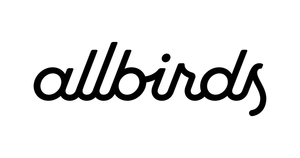How We Operate
Products Born From Partnership
By offering a carefully curated product range fit for all seasons, we’re able to maintain a small, tight-knit supply chain. We build deep, multi-year relationships with factories and keep in consistent contact—we visit them, they visit us. In addition to conducting our own audits when necessary, we accept third-party, mutually recognized standards to reduce audit fatigue at factories and ensure safe, lawful, humane, and ethical manufacturing practices.
Our Code Of Conduct
We are committed to ensuring that working conditions in Allbirds' supply chain are safe, that workers are treated with respect and dignity, and that manufacturing processes are environmentally responsible. Allbirds' Suppliers, including subcontractors, are obligated in all of their activities to operate in full compliance with the laws, rules and regulations of the countries in which they operate. This Supplier Code of Conduct (“Code”) goes further, drawing upon ILO Core Labor Standards, in order to advance social and environmental responsibility.
Read our Supplier Code of Conduct in its entirety here.
Factory Audits & Evaluations
Beyond written commitments covered in The Code, we also require our Tier 1 suppliers to participate in independent, third-party social and environmental audits. Before a factory is approved to produce for Allbirds, it must pass a social and environmental audit, which includes confidential worker interviews, review of documentation and records, and visual inspection of safety conditions. Allbirds audits are conducted against international labor standards and local law. Where there are discrepancies between the two, the more stringent requirement will be applied. We strive to audit all factories producing Allbirds' goods at least once per year.
Audits are scored and factories are rated as Green (Low Risk), Yellow (Medium Risk), Orange (High Risk), or Red (Zero Tolerance). Factories rated as Orange or Red after the initial audit will not be approved. For more information about our scoring methodology, please see Approval Criteria.
The purpose of an audit is not solely to approve a factory; it also helps us identify progress a factory is making or specific areas where a factory needs to improve.
Remediation Efforts
After a Responsible Sourcing audit is conducted, Allbirds expects that actions are taken to correct any non-compliance violations found. Corrective Action Plans (CAPs) are used to communicate what action steps will/should be taken, and are sometimes referred to as “Remediation Plans” or “Improvement Plans.” The purpose of a CAP is to ensure the factory and Allbirds agree on how to correct the violations that have occurred and prevent them from occurring in the future.
The factory creates a CAP that includes 6 key elements:
- Violation finding
- Underlying root cause
- Proposed immediate action
- Proposed preventative action(s)
- Target completion date
- Person(s) responsible
Depending on the severity and type of finding, in its sole discretion Allbirds may decide to check on CAP progress with a follow-up audit to validate that the findings are remediated, or “closed.” Allbirds will follow the following guidelines:
- For High Risk findings, Allbirds will arrange a third-party follow-up audit (either in-person or desktop) after the “Target completion date” listed on the CAP. Desktop audits are used only in cases that do not include checking records.
- For Minor or Medium findings, Allbirds’ local production team (Vietnam) may close Minor or Major Health & Safety CAP findings in-person, unless they are related to certificates (building/fire/environment/etc).
- If it is not possible for Allbirds’ local production team to close findings in person, the Allbirds Sustainability team will do a desktop review with the factory to close findings.
- The Allbirds Sustainability provides support to the factory in all cases, to develop CAPs that identify root causes and create sustainable solutions for the factory.
Worker Voice
The standard ‘point in time’ assessment approach where an auditor evaluates a factory once or twice a year may not provide brands or suppliers with the complete view needed to drive significant business improvements. Implementing worker surveys is a scalable approach for collecting anonymous feedback from large worker populations, which yields valuable insights around working conditions, working hours, worker-supervisor relationships, and worker retention.
During the time of the assessment, workers will be invited to participate in an anonymous mobile survey deployed through Laborlink technology. The Worker Sentiment Survey covers the following topics: relationship with supervisor, trust in grievance mechanism, working hours, wages, and plans to stay at the factory.
Subcontracting
Allbirds suppliers must not engage any subcontractor to perform any work for Allbirds products without prior written approval, and only after the subcontractor has agreed to comply with the Supplier Code of Conduct.
In addition to complying with the Code, we ask subcontractors to complete a detailed Factory Sustainability questionnaire and review third-party audits they have completed in the last 12 months. In cases where we have increased capacity, we will include the subcontractor in our Tier 1 auditing program.
Supply Chain Transparency And Traceability
Allbirds works hard to keep our relationships with our suppliers robust, respectful, and resilient so that our relatively small supply chain can make a real difference in the drive toward innovation and lighter impact. By offering a carefully controlled product range, we’re able to maintain a small, tight-knit supply chain.
All of our Tier 1 suppliers are enrolled in our social audit and environmental programs, and beginning in 2022, we are starting to engage our most strategic Tier 2 suppliers. Our goal is to have 100% of our strategic Tier 2 suppliers included in our social audit and environmental programs.
We have 100% of our Tier 1 and Tier 2 suppliers mapped, with a goal to reach 100% of all tiers of our supply chain by 2025.
In alignment with our 2025 Flight Plan goals, we published our Tier 1 finished goods manufacturers and subcontractors list, which will continue to be updated and expanded to additional supply chain Tiers annually.
Environmental Policy and Program
As the bulk of our carbon emissions and other impacts occur within our supply chain, it is crucial that we ensure our partners’ policies and practices support the protection, preservation and enhancement of the environment. It’s important that our supply chain, covering our raw materials through our manufacturers, is aligned with our environmental expectations.
That’s why we’ve developed an Environmental Policy and Program, which covers the environmental practices at the enterprise and supply chain level, and summarizes our continued commitment to reduce our environmental impact. The Program includes expectations of our internal operations, supply chain, and raw material related to environmental impact.
Animal Welfare Policy
Allbirds believes all animals should be treated humanely and is committed to ensuring a high level of animal welfare within our supply chains. We are committed to using responsibly sourced raw materials including the use of products derived from animals.
Wool is one of Allbirds’ most important raw materials and is currently the only animal fiber Allbirds uses in our products. Our Animal Welfare Policy ensures our wool is held to high standards of farming, land management and animal welfare.
Human Rights Policy
Our Human Rights Policy sets out our commitment to respecting and upholding all human rights wherever we operate, and to respecting the rights of those who are directly or indirectly impacted in our operations and supply chain.
The policy outlines our commitments, potential human rights risks, and efforts to reduce these risks and uphold human rights. We seek to ensure that our policies respect and promote human rights in such a way that drives meaningful, lasting positive change.





